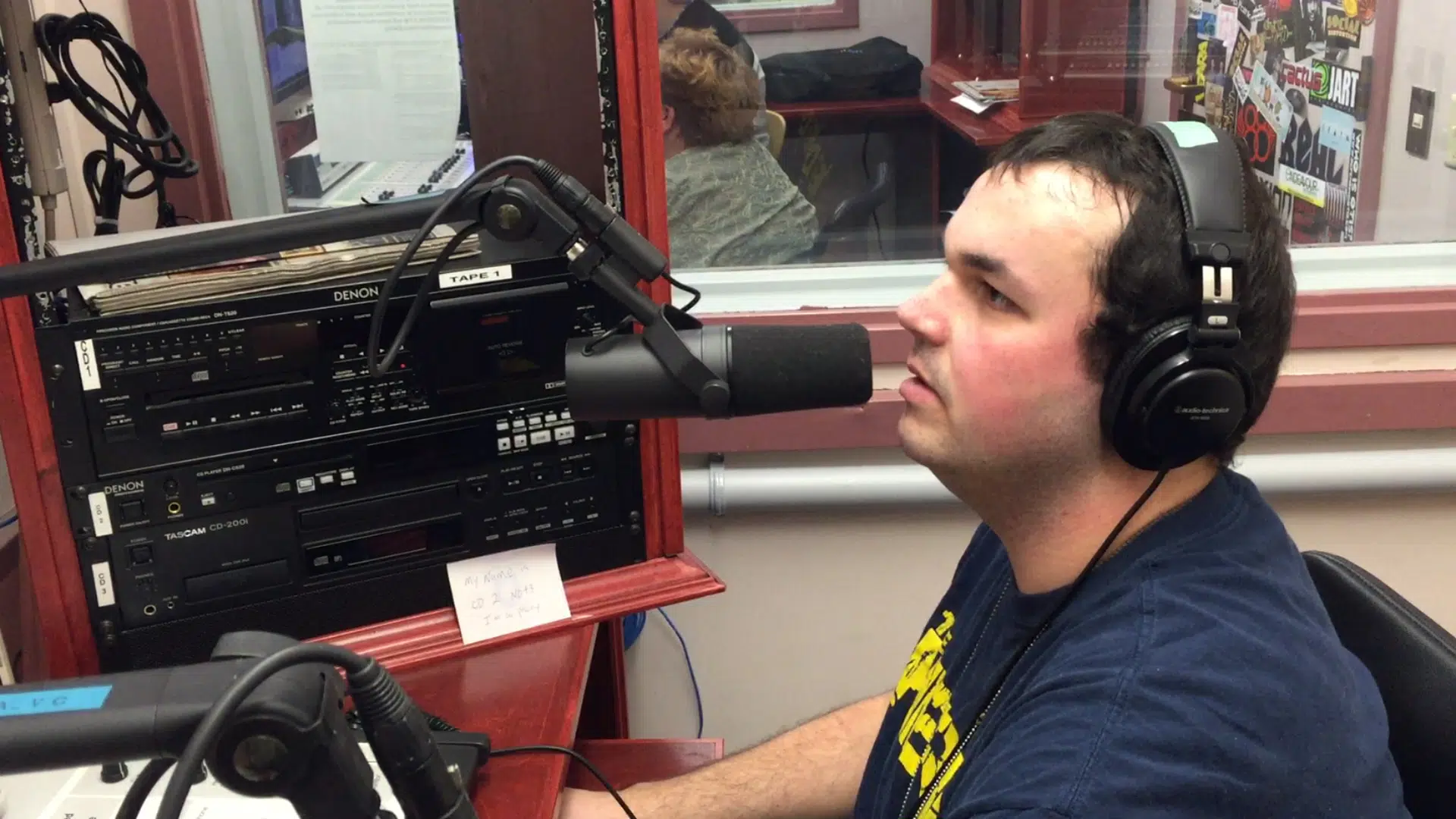
Students volunteering their voices to help others speak
LETHBRIDGE – “Laurie’s bashfulness soon wore off.”
When Dai Hewison normally takes to the studio for his campus radio show, it’s not to utter unrelated sentences like these.
“That business was a thing of the past.”
Hewison is in one of the CKXU studios at the University of Lethbridge, reciting seemingly random phrases into a microphone. He will spend a total of eight to ten hours, recording 3,500 sentences. Those sentences contain every combination of sounds in the English language.


